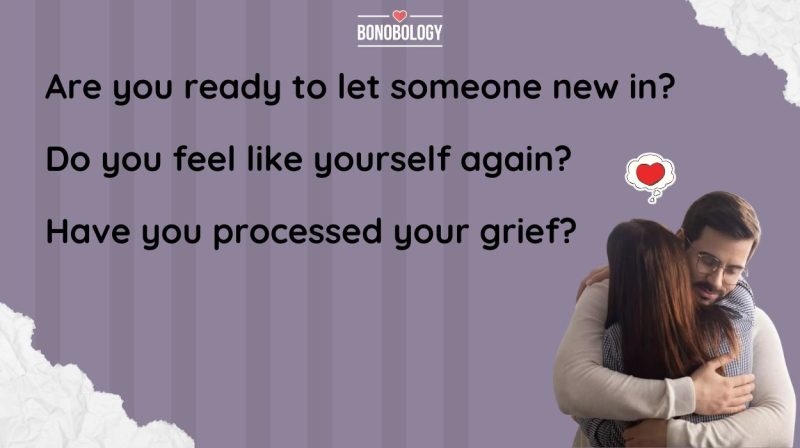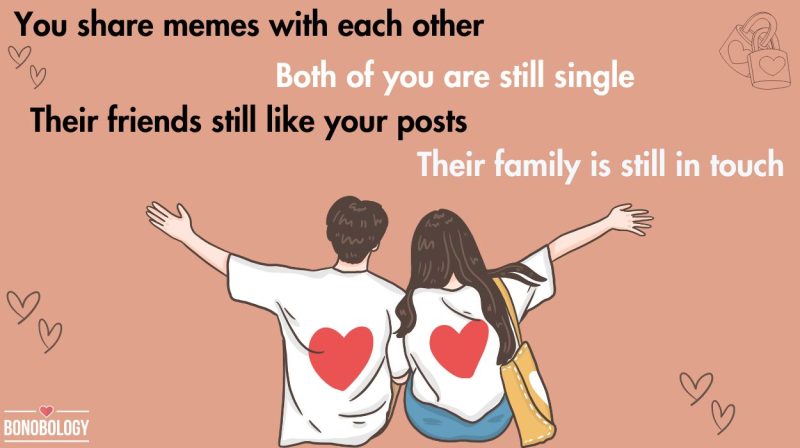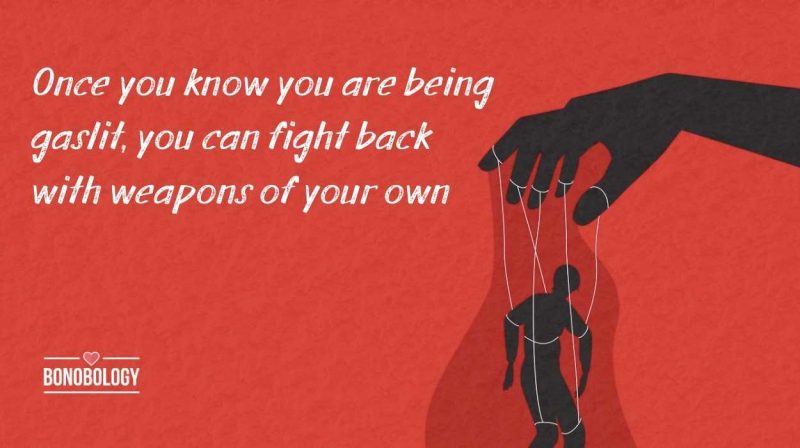In all the self-help manuals, books and articles that you have keenly followed all these years, you must have read about the need to maintain emotional boundaries in relationships, be they personal or professional. Often you read and then ignore them and it’s not surprising why.
After all, you may be having a perfectly wonderful marriage where your partner is happy with you, takes care of you, buys you gifts, takes you out and makes you feel special. Or you may be in that great job where you spend hours in the office, happily trekking to work even on weekends, safe and secure in the knowledge that putting in the extra effort is just the price you pay for a stable, secure, fulfilling life.
Well, we’ve got news for you: Unless you learn to set emotional boundaries, the world will continue taking you for a giant ride. And yes, that includes family! But the big question is: how do you set emotional boundaries in relationships? With the help of psychotherapist Snigdha Mishra (CBT & REBT expert from Beck Institute, Philadelphia), who specializes in hypnotherapy and emotional freedom therapy, let’s find out how you can set boundaries in a romantic relationship and why they’re important.
What Are Emotional Boundaries?
Table of Contents
Now, how do you know if there is something wrong with your boundary limits? Snigdha says, “I heard somewhere “not my monkey, not my circus”. This simply means that if it’s not my monkey in a circus, then it doesn’t matter to me and I don’t need to participate in that circus. The same applies to setting boundaries as well. This is the perfect example of how we don’t need to meddle in others’ lives and engage emotionally with people’s lives unless they ask us for help or advice or their actions impact us directly.
“Boundaries in a relationship simply mean that you’re prioritizing yourself and taking care of your emotional needs over somebody else’s. It also means learning to say “no” and not being concerned about people’s judgment or rejection of you. Therefore, not letting your actions be driven by a need to please others.”
As in any situation, you first need to understand a problem before you can take corrective measures to solve it. The same holds for setting emotional boundaries too. The “relationship boundaries” definition is fairly simple: it means, taking responsibility for your own actions and feelings while NOT taking responsibility for how others feel or act.
The moot point is: you cannot think or act on behalf of the world and that includes your spouse, partner, siblings, bosses and even parents. You’ve got to put yourself first, and you must not let anyone else’s feelings take precedence over yours.
Snigdha recommends a few questions you must ask yourself in order to be able to set emotional boundaries:
- What is it that you stand for and what are you ready to stand by?
- Are you a loyal person?
- Are you an honest person?
- Do you prefer assertion over aggression or aggression over assertion?
- What kind of style of communication would you like to have?
- What are your moral boundaries?
- What are the things you can let go and the ones you can’t compromise on?
She also explains how asking yourself these questions can help you, “When you understand yourself better, you’re able to stand your ground. This, in turn, enables you to determine how you express yourself, create your boundaries and represent those boundaries – both flexibly and rigidly, as the circumstances may demand.”
While there are certain ways and norms of behavior that one has to adhere to, problems in emotional boundaries occur when you go above and beyond in your attempts to please others. Do you hesitate to share your preferences at a family dinner? Do you end up eating steak because your husband likes it even though you prefer seafood?
Related Reading: Emotional Baggage – What It Means and How To Get Rid Of It
At the other end of the spectrum, do you feel shy of accepting compliments or asking for help because you are too egoistic? These are all instances of incorrect emotional boundaries. Emotional boundaries in dating may seem unattainable without an awkward conversation with your partner, but sometimes, to have boundaries in relationships, all you need to do is be a little stern about things that are not okay with you.
Here’s an example of emotional boundaries in a relationship: Jessie had had a long day at work, and was very stressed out about the early morning she had the next day. Aaron, her partner, needed to talk about a traumatic event that happened with him in the past. He wanted to share his emotions with the person he’s most intimate with, Jessie.
However, Jessie didn’t have the emotional capability to process such an intense conversation. By simply saying “I feel mentally and physically exhausted by the things that took place at work today, and I don’t think I’m in the state to process such information” she was able to set boundaries in a relationship without being controlling.
Why Are Emotional Boundaries In Relationships Important?

Emotional boundaries in relationships are important because they give you a healthy relationship. Often, low self-esteem is a cause for poor boundaries setting. People with high self-esteem or those who don’t indulge in negative self-talk rarely find it difficult to set limits to their interactions as they are in control of their lives and know what they want and don’t want.
Explaining why emotional boundaries in relationships are important and yet so hard to set, Snigdha says, “More often than not, when we’re looking to invest in a relationship – be it professional or a personal relationship with friend and family or even romantic partnerships or marriage, we’re told that our emotional investment is directly proportional to how that relationship grows.
“But we’re never told where to create emotional boundaries. The simple reason behind it is that attributes like altruism or being selfless are celebrated to an extent that when you start asserting yourself, saying “no”, optimizing your behavior and lifestyle for self-care, you fear being judged as selfish, being rejected, unloved for being a strong-headed, independent person.
“However, this is untrue. When you don’t set emotional boundaries, you either start pitying yourself and feel like a victim or start feeling and behaving like a martyr. Being treated like a doormat and allowing people to walk all over you takes its toll over time. Eventually, you feel like you’ve wasted your life for things that did not matter to you just owing to these fears you couldn’t come out of.”
Here are some other reasons why drawing the line and asserting how far you’re willing to go or let someone in any kind of relationship is critical:
1. To protect yourself
Personal boundaries are important also because you need to protect yourself first before going to help others. Often, you end up becoming a sponge for everything that is thrown at you. It is especially seen in family dynamics.
Do you find yourself doing most of the work at your family’s Thanksgiving dinner while other members enjoy and take time out for themselves? It is a subtle sign that your family takes you for granted. It’s important to set boundaries early in a relationship, so a time doesn’t come when people assume your feelings and make you feel pressured into doing things you actually don’t want to.
2. To prevent being manipulated
Not everyone is out to hurt you. But subconsciously when you fail to set personal boundaries, emotionally needy people in your life tend to manipulate you. This can especially happen in marriages or long-term relationships where one partner tends to depend more and more on another.
Do you see yourself trying to solve every problem your spouse finds himself or herself in? Do you find yourself putting your needs and desires at the backburner only because you are reluctant to displease them? Then you are in an emotionally draining and manipulative relationship.
Contrary to what people think, how boundaries affect relationships isn’t by creating a negative cesspool of arguments and feeling detached. Boundaries help preserve who you are and make sure others don’t end up manipulating you because they’re assuming what you feel.
Related Reading: 12 Ways to Fix A Toxic Relationship
3. To avoid being taken advantage of at work
You are a great employee. Your colleagues and bosses value you. So far so good. But does it happen often that you spend hours at work trying to complete a project by yourself when you could do with some help from others? Do you end up taking the blame for your team or colleagues?
Why is it that your boss palms off extra work on you while your peers go fishing on the weekend? It’s because you haven’t said a firm “no” to working beyond your limits, because you assumed it’d be an act of establishing unhealthy boundaries in relationships by taking authority of yourself.
That couldn’t be further from the truth. You’re responsible for yourself, and it falls upon you to say no to any sort of mistreatment that may happen to you. If you’re being overworked or used simply because your superior assumes you’ll be okay with it, you need to have boundaries in relationships.
4. To be happy
Yes, it can be as simple as that! Being a good girl or nice boy might seem like a compliment but not when it tramples upon your sense of identity. To ensure it doesn’t happen, you need to go deep within yourself and ask if being the proverbial self-sacrificing lamb makes you happy.
The answer is no. The problem with not setting boundaries properly is that you end up allowing way too many people into your life, some of whom, quite frankly, don’t deserve to be there. You may let people into your life who always end up mistreating you, and have done so in the past. And you inadvertently expose yourself to a lot of trauma dumping, which, in turn, impacts your mental health.
You may struggle to put your foot down and tell them something stern because you think their feelings take precedence over your own. Just because they say they need you doesn’t mean you should let them in all over again to hurt you. To set boundaries in a relationship without being controlling, all you have to do is say, “I feel violated when you disrespect me, and the fact that you’ve done it in the past makes me unable to trust you again.”
5. To create healthy relationships

The key to having good, positive relationships with your family, friends, colleagues and acquaintances is to be stress-free. Setting healthy boundaries is the first step toward that, “healthy” being the operative word. You don’t have to be rude or stand-offish or even reserved.
There are plenty of polite ways of letting other people know where they stand in your life. You are basically creating a line between what is acceptable and what is not. By doing so, you will only rise in the estimation of those around you. Setting emotional boundaries in dating makes sure that you’ve clearly established that you’re not going to be a pushover, so you can make sure that your needs and wants will be respected.
Related Reading: Fake Relationships – 15 Ways To Identify You Are In One
How To Set Emotional Boundaries In Relationships
We’ve highlighted the importance of setting boundaries early in a relationship but the effort remains useless if you’re not sure of how to go about setting them. “My husband always told me to not talk in a certain way, just because it ‘irked’ him. He claimed that it was a ‘boundary’ he was establishing, and he wanted to practice it by making me change my behavior.
Only when I told a friend about how this behavior of his makes me feel belittled did I realize that he had actually set unhealthy boundaries in our relationship. I struggled with bringing it up since I was never the kind to take a stand for myself. And since we lived in a joint family, it was harder to find time with just my husband, and I definitely wasn’t going to do it in front of others,” Jasmine told us.
It can be difficult but not impossible to set emotional boundaries in a relationship, especially when you have spent years being someone who has always had blurred lines. Well, it’s time to change the status quo and take charge of your life and give it a different direction. Here’s how.
1. Practice with examples of emotional boundaries
Learn how to set healthy boundaries. If you have always given in to your partner’s wishes all the time, slowly but consistently start asserting yourself in the relationship. Remind yourself – you have the right not to meet others’ unreasonable expectations. Your needs are just as important.
You have the right to be treated with respect in a relationship. You can say ‘no’ politely yet firmly to anything you are uncomfortable doing. You don’t need to go into long-winded explanations about why you are refusing something in order to set better emotional boundaries. Learn to say “I” more effectively. “I think,” “I feel,” “I believe,” and so on.
The examples of emotional boundaries in relationships aren’t as dramatic as you think they are. They can include your partner not talking about a particular subject because it incites negative feelings in you, or not letting any verbal abuse pass by because you’re too shy to put an end to it.
Once you manage to realize that it’s all about respecting yourself a little more, you’ll see how boundaries affect relationships. They’re meant to lead you both toward a harmonious relationship, not one that’s filled with resentment.
2. Protect your space fiercely
This is a mistake that most couples make in the early heady rush of their relationship or marriage – losing a sense of personal space so much so that they both begin to intrude into each other’s innermost circle. That needs to be corrected by being mindful of the fact that a healthy relationship is not defined by always being joint at the hip.
Let go a little and give your partner space in the relationship. At the same time, treat your space as sacred and protect it fiercely. You can start with baby steps like putting your private items in a safe box that your partner doesn’t have access to, not sharing social media passwords, having separate bank accounts and expense sheets.
Setting boundaries also entails being more vocal about your feelings. When you are expressing your displeasure at something you are not comfortable with, including sex, look straight into the eye and say it. Do not feel embarrassed or reluctant.
Setting emotional boundaries in dating could also be all about practicing some healthy personal space in your dynamic. When you let your partner know that your individuality is important to you by exercising some personal space, it’s an example of emotional boundaries in relationships.

3. Set boundaries in a romantic relationship by recognizing others’ boundaries
To expect others to respect your personal emotional boundaries, it is essential to recognize and respect theirs. If somebody backs up when you talk, does not respond to you in the first go, avoids eye contact, gives mono-syllabic reactions, shifts uncomfortably… they’re are giving you non-verbal cues that they’re not exactly in alignment with what you want or are trying to say, hence it’s better to back off.
Don’t be so caught up in setting your own boundaries that you ignore that of others, remember they have a right to say ‘no’ or stay away from you too. When that happens, don’t feel offended. However, make sure you don’t give in to unhealthy boundaries in relationships that they establish. Their boundaries are supposed to protect their individuality, not diminish yours.
4. Work on your self-esteem
Setting good personal boundaries is an important facet of a positive relationship but as with most other things in life, it begins with you. You first need to be aware of when your boundaries are being crossed and the only way to do that is to be tuned with yourself.
Be in touch with your emotions and stay in a state of awareness. If you feel discomfort, stress, anxiety, guilt, anger or resentment, it could be because you recognize that you are being taken advantage of. Respect yourself. Stand up for yourself. Say “no” like you mean it.
Establishing emotional boundaries in dating is all about how stern you can be about the things that you’re not comfortable with. If you don’t want to talk about something, you don’t have to. If you don’t want to cuddle right now, you shouldn’t, and you must say no. Once you work on your self-esteem, you’ll better be able to put your foot down.
Related Reading: 8 Things That Ruin Relationships And You Don’t Even Realize it
5. Learn to set emotional boundaries in a marriage
This can be really tricky. When you have a weak sense of identity, you let your partner make your decisions, sometimes at a total disregard for your own likes and dislikes. Of course, a healthy and happy marriage requires some adjustments and reciprocity from both spouses. However, it’s for you to decide which values or areas you’re willing to bend and compromise on and which ones are absolutely non-negotiable.
Once you’ve made that differentiation, sit with your spouse and discuss the emotional boundaries you’d like to have in your marriage and ask them where they’d draw the line. In case of a conflict, be open to discussions and conversations to find a middle ground as long as you’re not the only one being expected to bend over backward.
Sometimes you fail to set boundaries in a marriage because you fear losing the relationship or are afraid of being judged. Here’s the key. You need to commit to yourself first. Try and assert yourself in smaller things first and then move on to bigger things. Your partner may not always go with your suggestions but express your feelings and opinions. Gradually, it will establish you as a person who has a mind of her own.
6. Learn to set boundaries in office

Strangely, most professionals, especially those working in high-pressure industries like IT, media and healthcare, believe that the more hours they spend at work, the more hard-working they are. Let’s get this straight. Your organization might value you but will have no respect for your time if you don’t take those breaks that are entitled to you.
Make a strong resolve not to answer work-related emails after work. Each year, identify the days you want to be on leave and apply for them well in advance. Staying late might be a corporate reality but don’t make it a habit. Let it remain an exception.
An example of emotional boundaries in relationships is when you tell your boss that it’s not okay for you to work unpaid overtime since you’re paid for your time, not the goodwill of the company.
7. Make lists and refer to them closely
Here’s a trick. Draw up a list of people close to you at work and in your family. Introspect on who makes you feel what in each situation and find the areas where you feel the need to have better emotional boundaries. Then, make a list of what boundaries you’d like to set with each of them.
Does your husband go golfing expecting you to help with your child’s homework? Tell him that you need time off for a spa session with your gal pals and ask him to take over the kids’ responsibilities for the day. Promise to reciprocate when he needs time to blow off some steam.
Related Reading: How To Overcome Codependency In Relationships
8. Ask for help, ask for space
Yes, you can do both without feeling guilty. A lot of times people with poor emotional boundaries are too proud of themselves. It may seem like a contradiction but that’s what happens. A homemaker is so used to proving she is a superwoman that she will do everything at her house and burn herself out trying to be the perfect mother and wife.
A professional might be so eager to please his or her boss that they would take on every responsibility even at the cost of their mental health. Don’t do it. When you’re struggling with unhealthy boundaries in relationships that others have established with you, ask for assistance when you need it. You are NOT a Marvel hero that needs to save the world. Request for help when you need it and say “no” when you need your space. They will back off.
The basic rule of setting good emotional boundaries is to honor yourself. Good boundaries are a sign of a mature person who knows what he or she wants from life. Do not compromise your self-worth for even those who are closest to you. Find your space and revel in it!
If you struggle with setting boundaries in a romantic relationship or in any kind of relationship, your mental health may suffer because of it. In such cases, approaching a licensed mental health therapist can be vital. Bonobology’s panel of experienced therapists can help you figure out the boundaries you are lacking, and how to go about establishing them.
FAQs
The definition is fairly simple: it means, taking responsibility for your own actions and feelings while NOT taking responsibility for how others feel or act.
You create emotional boundaries to protect your own feelings, to prevent being manipulated in a relationship and to not let others take you for granted.
Sometimes you fail to set boundaries in a marriage because you fear losing the relationship or are afraid of being judged. But you have to assert yourself to set your boundaries.
You have to assert yourself in your family, in the relationship and in the workplace and stop pleasing others because they expect you to do things for them.
The basic rule of setting good emotional boundaries is to honor yourself and your heart first. You cannot let the feelings of other people take precedence over yours.
6 Reasons a Guy Ignores You after a Fight and 5 Things You Can Do
Your contribution does not constitute a charitable donation. It will allow Bonobology to continue bringing you new and up-to-date information in our pursuit of helping anyone in the world to learn how to do anything.






















